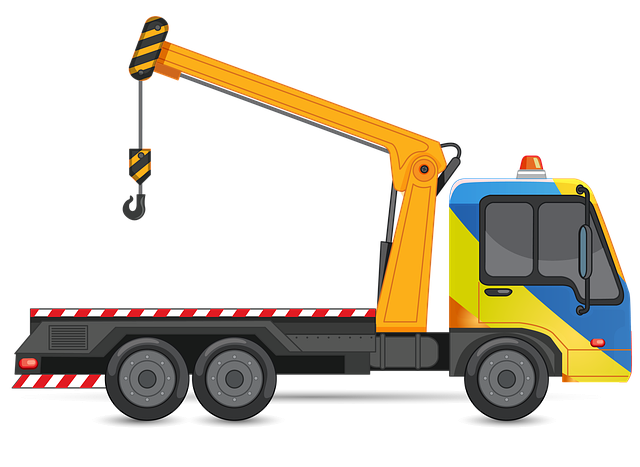Operating a box truck requires tailored insurance coverage. Delivery and custom box truck policies include liability and cargo protections based on vehicle age, driver experience, cargo value, use (local vs. long-distance), annual mileage, stops & starts, and driving record. Customization ensures optimal cost-protection balance for unique business risks. Compare options from specialized providers, evaluating general liability and cargo insurance while considering business size, fleet vehicles, history, and desired protection level. Research insurers' reputations for informed decisions based on best value and service.
Navigating the world of box truck insurance can be a daunting task, especially with varying delivery truck insurance rates. As your box truck business insurance needs evolve, understanding the key factors influencing box truck liability coverage is essential. This comprehensive guide will walk you through custom box truck insurance options and help you compare commercial box truck insurance plans effectively. From box truck policy customization to ensuring adequate box truck protection, this article is your go-to resource for insuring your valuable assets and securing peace of mind on the road.
- Understanding Box Truck Insurance Requirements
- Factors Influencing Delivery Truck Insurance Rates
- Customizing Your Box Truck Policy
- Comparing Commercial Box Truck Insurance Options
Understanding Box Truck Insurance Requirements

When it comes to operating a box truck, whether for delivery services or managing a fleet of custom box trucks, ensuring adequate insurance coverage is non-negotiable. Box truck insurance requirements vary depending on factors like vehicle use, cargo type, and business nature. Understanding these needs is crucial for every box truck owner or operator looking to safeguard their investment and protect themselves from potential liabilities.
Delivery truck insurance, for instance, typically includes liability coverage that compensates for damages caused to others in an accident. Custom box truck insurance policies may also incorporate specific protections tailored to the unique aspects of your business, such as cargo coverage if you transport valuable goods. A comprehensive box truck policy should consider not just the vehicle but also any specialized equipment or modifications and the specific risks associated with your delivery routes and operations.
Factors Influencing Delivery Truck Insurance Rates

The cost of box truck insurance is influenced by a range of factors that reflect the risks associated with operating this specialized type of vehicle and the goods it carries. Key considerations for delivery truck insurance rates include the age and condition of the box truck, the driver’s experience and safety record, the type and value of cargo being transported, and the intended use of the vehicle (local vs. long-distance deliveries).
Additionally, businesses using their box trucks for commercial purposes will face different insurance requirements than private individuals. Factors like the number of miles driven annually, the frequency of stops and starts (which can increase wear and tear), and any pre-existing conditions on the policyholder’s driving record all play a role in determining competitive box truck insurance rates. Understanding these influencing factors is crucial for securing the best possible coverage at an affordable price for your custom box truck business needs.
Customizing Your Box Truck Policy

When it comes to insuring your box truck, customization is key. Commercial box truck insurance policies are designed to be flexible, allowing business owners to tailor their coverage to match their specific needs and risks. This means you can include or exclude certain types of liability, cargo protection, and even add specialized coverage for delivery trucks if needed. By customizing your box truck policy, you ensure that you’re not paying for unnecessary protections while also ensuring comprehensive box truck insurance that keeps your business safe.
For instance, if you operate a delivery truck with valuable cargo, you might want to opt for enhanced box truck liability coverage and cargo protection. Alternatively, if your truck is used primarily for local hauls with minimal risk of damage or theft, a more basic policy could suffice. The beauty of a customizable box truck policy lies in its ability to mirror the unique aspects of your business, providing box truck protection that’s neither too costly nor insufficient.
Comparing Commercial Box Truck Insurance Options

When it comes to insuring your box truck, comparing different options is a smart move. It allows you to find the best fit for your specific needs, whether you’re in the delivery or logistics business. Start by evaluating various insurance providers who specialize in commercial vehicle coverage, as they can offer tailored policies for box trucks. Look into different types of box truck liability coverage, such as general liability and cargo insurance, to protect against potential risks during transit.
Consider factors like your business size, fleet vehicles, driving history, and desired level of protection when shopping for a box truck policy. Some insurers might cater to custom box truck modifications with specialized coverage, ensuring your unique vehicle is adequately protected. Additionally, evaluating the reputation and customer reviews of insurance companies can help you make an informed decision regarding which provider offers the best value and service for your money.
When it comes to keeping your box truck business protected, understanding the various aspects of insurance and tailoring a policy to fit your specific needs is key. By factoring in elements like vehicle usage, driving history, and liability coverage requirements, you can navigate the competitive landscape of commercial box truck insurance rates effectively. Customizing your policy ensures comprehensive protection, allowing you to focus on what matters most: delivering goods efficiently and securely. Remember, the right box truck insurance provides peace of mind, safeguarding your business from potential risks and ensuring a smooth operational journey.
